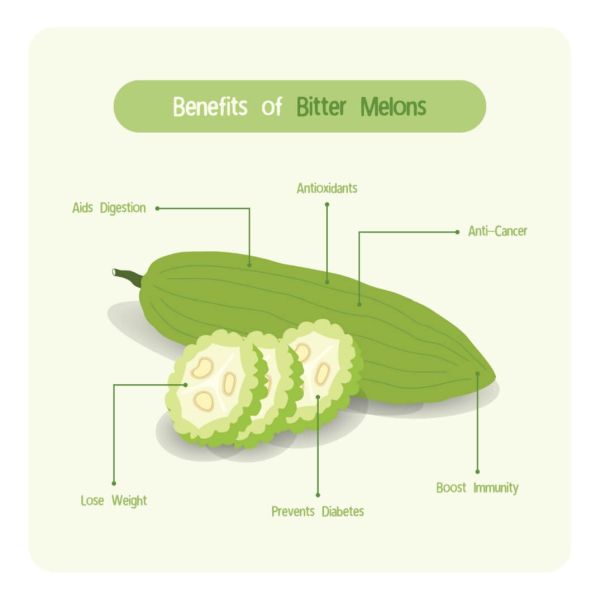Balsam pear is a traditional ingredient in Asian medicine and cuisine. Its most basic use is to help with gastrointestinal issues. In the United States, studies have shown that it can help people who are coping with diabetes. Extracts of the fruit also might help prevent and treat cancer and malaria.
Colloquially known as bitter gourd or bitter melon, the fruit grows all over Asia and in parts of South America. It grows on a tropical vine with yellow flowers. When immature, the fruit looks like a wart-covered cucumber. As it matures, it turns orange and becomes more bitter. When very ripe, the fruit actually is too bitter to eat.
Throughout Asia, the immature balsam pear is used in food. Sometimes it is eaten as a culinary compliment. Other times, it is eaten just for its purported health benefits.
The fruit’s bitterness makes it able to be used to stimulate digestion. In general, bitter foods help with bad digestion and constipation by jump-starting the digestive process. The increased digestive activity often causes worsening of ulcers and heartburn. Balsam pear is particularly soothing, so it rarely aggravates these conditions.
In some parts of South America, the leaves of the plant are brewed into tea. The tea leaves are then strained out so only the liquid remains. This tea is used to treat diabetes and malaria.
Studies in the U.S. have shown that balsam pear contains a sugar binding protein called a lectin. Lectins act like insulin to remove sugar from the bloodstream. Presence of this lectin makes the fruit useful for treating adult-onset diabetes, also known as Type II diabetes.
Some Asian and South American medicine traditions hold this melon can help prevent malaria. Scientific studies in the U.S. have found compounds in the fruit that might affect malaria. More study is needed to determine the full benefits.
Other studies have found that balsam pear might inhibit cancer cell growth. It might even help to kill existing cancer cells. Extracts might be useful as a cancer preventative or even as a treatment for existing cancers.
The balsam pear has few side effects, but it should be used only with the guidance of a medical professional. The most common side effect is gastrointestinal discomfort. It should not be used by women who are pregnant or nursing, because some compounds in the fruit might be harmful to infants. Large doses also might be harmful to young children.
Post time: Mar-19-2020
